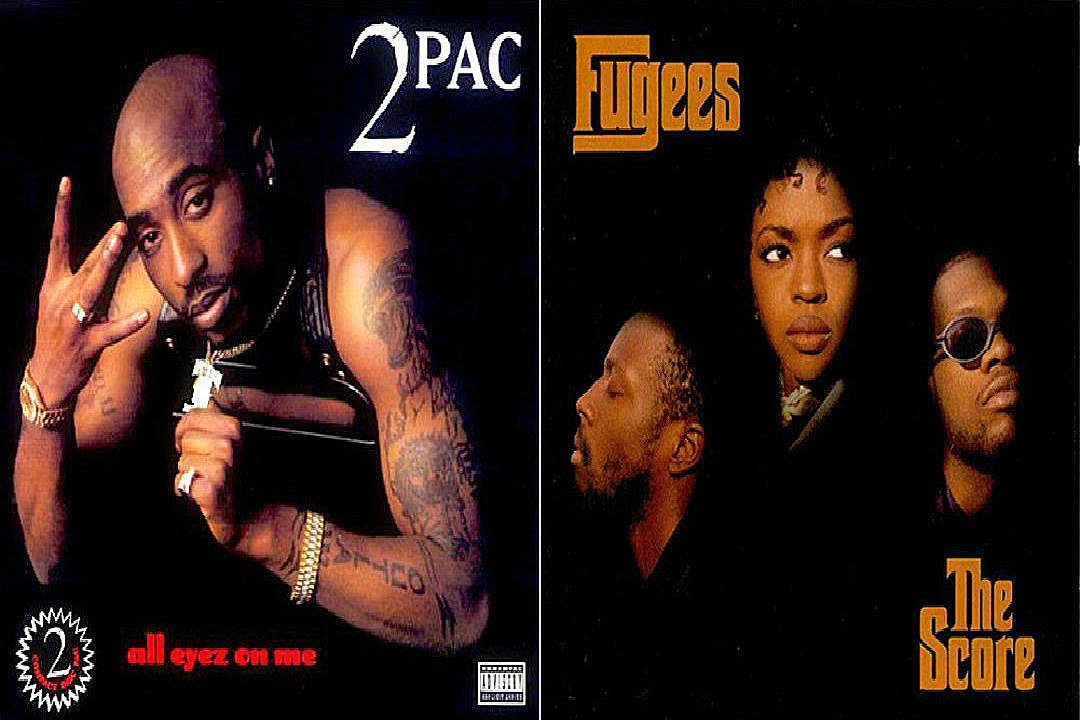

And you certainly don’t get the Yele Foundation, named after the Carnival song where Wyclef laments the suffering of his people.
#Fugees the score full full#
Without the success of The Score, you don’t get four songs in full Haitian Kreyol on Wyclef’s 1997 solo debut Wyclef Presents The Carnival, as well as features from Kompa megastar - and former Haitian President - Michel Martelly, and Jacob Desvarieux and Jocelyne Beroard of the renowned French Caribbean band Kassav from Guadeloupe. When The Fugees arrived in Port-au-Prince in 1997 with global cameras in tow, it was the first time many saw Haiti as more than poverty and boat people. It made international superstars of Wyclef Jean and Prakazrel Michel, and brilliantly allowed them to introduce Haiti and Haitian culture to the world. It was a turning point that allowed first and second generation Black children of immigrants to stop wanting to Americanize their French names. It was like seeing these two Haitian kids with funny names, and the same unidentifiable, neither Haitian nor American accent, as some of our cousins who opened a world of possibilities for the rest of us. We might get three songs “for the Haitians” at any given West Indian party, and one of them is guaranteed to be a song by Kassav, who hails from Guadeloupe and Martinique. Those who assimilate broader West Indian culture - attending reggae and soca events and relying on Jamaican restaurants to quell cravings for rice and beans, for example - often do so at the cost of their own cultural traditions. There are musical and culinary commonalities with Cuba, Puerto Rico and the Dominican Republic, but the history of colorism in all four countries, as well as the complexities of race relations in the States, result in differences that overshadow the shared roots. Haiti’s unique culture as one of a small handful of French-speaking countries in the West Indies has also served to isolate Haitians living in the U.S. in the late ‘90s.ĭespite being only 720 miles away from the southernmost point in the U.S., Haiti always seemed like a much more distant place from the American purview, especially in the late ‘80s and early ‘90s as most global conversations about Haiti centered around political unrest and poverty. The fact that the Refugee Camp global mix version of “Fu-gee-la” finds Clef, Pras and Lauryn rapping in French rather than Kreyol, is a testament to what Haitian cultural identity was in the U.S. The “Fu-gee-la” video certainly gave off strong Haiti vibes despite being filmed in Jamaica. Honestly, the most Haitian thing about The Score may be Wyclef’s accent as he covers the Bob Marley & The Wailers classic. The first word of Kreyol is spoken near the end of “No Woman, No Cry,” and followed by a few notes of Kompa music. What’s fascinating is that there isn’t anything inherently Haitian about the album In fact, Haiti isn’t referenced until the end of track 10. “Haitian Body Odor” - jokes in the early ‘90s and who literally formed a gang in South Florida to put an end to the bullying, The Score was a long-awaited, grand-scale win. Kids whose parents avoided teaching them French or Haitian Kreyol in hopes of protecting them from the discrimination that often comes with accents in America, and who were teased mercilessly because of the cultural norms their parents insisted on maintaining despite their new residence or naturalization status.įor the Haitian-American kids who didn’t quite fit in with the other English/Patois speaking West Indians in Brooklyn who dealt with all the H.B.O. The children and grandchildren of immigrants who had arrived to this country instantly became double-minorities. Twenty-five years later, as fans cautiously get hyped about a confirmed Fugees reunion tour, it remains the best selling album by a rap group in the U.S.īeyond what The Score represents to hip-hop fans - especially the generation that came to love it as one of many in a year of amazing hip-hop albums - The Fugees’ career-saving second release was a cultural moment for Haitians across the world, but more specifically Haitian-Americans. Powered by the project’s first single, “Fu-gee-la,” which arrived officially a little over a month before the album’s February 1996 release, The Score was both critically acclaimed and a record-breaking commercial hit, becoming the best-selling rap album ever at the time of its release. The release of The Fugees’ sophomore album, The Score, is an indelible moment in hip-hop. Photo by Ron Galella, Ltd./Ron Galella Collection via Getty Images The Fugees’ The Score was a cultural moment for Haitians across the world, but more specifically Haitian-Americans, normalizing and legitimizing all they had to contribute as part of hip-hop and pop culture at large.


 0 kommentar(er)
0 kommentar(er)
